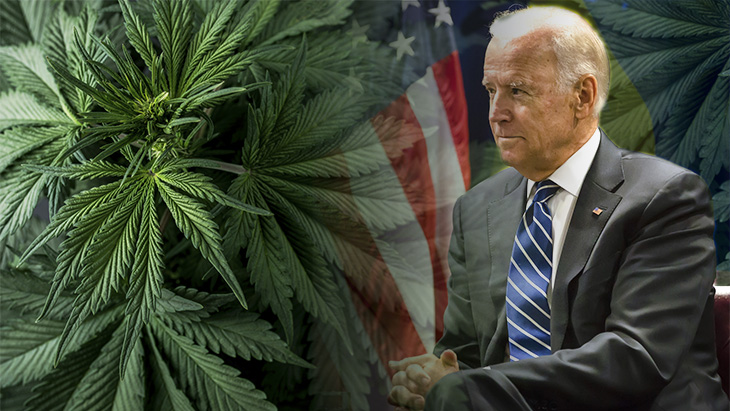The Congressional Research Service (CRS), a nonpartisan shared staff to congressional committees and members of Congress, released a new report outlining pathways available for the Biden Administration to unilaterally end federal marijuana prohibition and to issue general amnesty for those who have been convicted of federal marijuana crimes.
“This new report affirms what advocates have long called for when it comes to taking decisive, consequential actions to address our failed federal prohibition,” said NORML Political Director Justin Strekal. “Should President Biden wish to acknowledge the political, economic, and moral realities surrounding cannabis policy, and fulfill the promises he made on the campaign trail, this report lays out a clear roadmap for how to do so.”
The CRS specifically addresses the Executive Branch’s abilities to remove marijuana from the Controlled Substances Act:
The President could pursue the appointment of agency officials who favor descheduling, or use executive orders to direct DEA, HHS, and FDA to consider administrative descheduling of marijuana. The notice-and-comment rulemaking process would take time, and would be subject to judicial review if challenged, but could be done consistently with the CSA’s procedural requirements.
To this end, the Biden Administration has already fulfilled the first step through key appointments of individuals who support reform.
Attorney General Merrick Garland recently testified before the Senate Judiciary Committee, opining, “It does not seem to me useful the use of limited resources that we have to be pursuing prosecutions in states that have legalized and are regulating the use of marijuana, either medically or otherwise.”
Health and Human Services Secretary Xavier Becerra has publicly defended California’s legalization laws and has expressed support for moving beyond cannabis criminalization, stating, “Cannabis is last century’s argument. We’re beyond that.”
In her role as New Jersey’s top prosecutor, newly appointed DEA Administrator Ann Milgram expressed openness to that state’s decision to legalize and regulate medical marijuana access.
The FDA Director role continues to be unfilled.
The CRS also specifically addressed the Executive Branch’s ability to issue pardons for federal marijuana offenses:
The President may grant a pardon at any time after an offense is committed: before the pardon recipient is charged with a crime, after a charge but prior to conviction, or following conviction. The power is not limited to pardons for individual offenders: the President may also issue a general amnesty to a class of people. It therefore appears that the President could provide clemency for some or all past federal marijuana-related offenses without making any changes to the CSA.
Earlier this year, NORML sent a letter to the Biden Administration requesting it take this exact approach, and delivered supporting resources and documents to support such an endeavor.
On the campaign trail during a Presidential debate in November of 2019, then-candidate Biden said: “I’ll be very brief. Number one, I think we should decriminalize marijuana, period. And I think everyone — anyone who has a record should be let out of jail, their records expunged, be completely zeroed out.
“But I do think it makes sense, based on data, that we should study what the long-term effects are for the use of marijuana. That’s all it is. Number one, everybody gets out, record expunged.”
To date, neither of those campaign promises have been met with any administrative actions.
Full text of the new CRS report can be found here.
You can read NORML’s memo on the Controlled Substances Act here.
Related
Medical Disclaimer:
The information provided in these blog posts is intended for general informational and educational purposes only. It is not a substitute for professional medical advice, diagnosis, or treatment. Always seek the advice of your physician or other qualified healthcare provider with any questions you may have regarding a medical condition. The use of any information provided in these blog posts is solely at your own risk. The authors and the website do not recommend or endorse any specific products, treatments, or procedures mentioned. Reliance on any information in these blog posts is solely at your own discretion.






